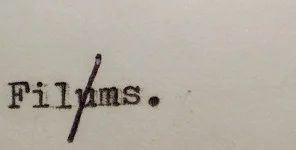Reviewed by Drew Ninnis.
Country: Israel
Director: Ram Loevy
Screenplay: Ram Loevy (Documentary)
Runtime: 70 minutes
Trailer: “If you're looking for boring, everyday stuff then you've come to the right person.”
Viewed as part of the 2014 AICE Israeli Film Festival.
Plot: Israeli filmmaker Ram Loevy documents the every-day life of his hometown of Ramat Gan, a city of Tel Aviv, and the stories of colourful locals. We meet an Iraqi barber whose father was barber to the King of Iraq, a quite amazing Russian accordion player who has a quote for every customer, a Jewish dollar store owner with a love for Arabic poetry, and several nostalgic ex-Soviets. People pass by, talking on their cell phones, and a poor parking inspector wangles with the general indifference of the locals.
Review: A brief description of Ram Loevy’s latest documentary, Let’s Assume, For a Moment, That God Exists, in no way conveys the small joys and laughter this film contains. The stakes are low, the individuals ordinary, and the events everyday – yet there is a quiet pleasure in getting to know the people Loevy interacts with on a regular stroll through his local community. This structure also cases some minor imperfections – Loevy works hard to build an artificial narrative into the documentary that really doesn’t need one, among others – but the short seventy minutes will leave audiences wishing for just a few more minutes to relax out the front of Mier’s grocery store to shoot the breeze with Eli and company.
The city of Ramat Gan itself is a fascinating place, with a statue of the national poet N.H. Bialik in the city square. Amusingly, a radio interview heard passingly in one of the segments of the film mentions that Bialik, in the last year of his life, ran away from his home and family to live in a small residence in Ramat Gan. His reasoning was that with all of the fuss and noise he couldn’t get any work done at home. The quaintness, communal pride, and incidental but surprising stories mark all of the individuals introduced throughout the film. We are introduced to Mier, who runs the local grocery store and meeting place for general discussion among community members – the plastic seats outside transformed into a Vienna coffee house for the new age. Even more curious is local Iraqi barber Eli, who is described as the unofficial ‘king’ of the local community. He has an amusing run-in with a young parking inspector, who is too kind to ticket most of the local’s cars and enters into long debates with them about the merits of their illegal parking. Audiences will pity the poor fellow with the worst job in Ramat Gan, even as they chuckle along with the wily Eli.
This is the sort of documentary where not much happens, and that works just fine – the few missteps Loevy makes are when he tries to force things, worrying that the documentary won’t be interesting and inserting himself or performers on phones into the frame. But audiences will be forgiving, when the tiny stories of these mostly émigrés are slowly disclosed. It is the sort of film where everyone will have a favourite; and mine is the magical Russian accordion player Edi, who we meet playing a waltz from Shostakovich’s Jazz Suite. He meets every well-deserved shekel with a quote, declaring in Hebrew to one elderly man ‘all the best to your sons,’ and to another woman ‘this summer you will wear white and pray to God.’ He becomes truly animated on meeting fellow Russians, letting his language run free and misquoting the great Vladimir Ilyich Krupsky (i.e. a henpecked Lenin, his domineering wife being Nadezhda Krupskaya) – ‘No matter how hard we work during the day, we will be drunk in the evening.’ The film is full of pity insights, one local remarking that in Israel at the moment ‘the entire country is hungry, even the birds.’ This is confirmed later in the film by a visit to an impromptu tent city in the square, protesting the increasing cost of living. Yet the gentle, erudite owner of a dollar store marvels at the trinkets he has purchased from China, on sale for shekels despite the materials, work, and shipping. He then returns to eating his orange, and reading poetry in Arabic – an occasion, the director remarks, which made him want to make the film in the first place.
Loevy a little ungracefully tries to forge these moments into a comment on the nature of community and the transcendence of God; and the surprising places the Yahweh conception of the divine can be found in the everyday, even among the birds and the bees. He doesn’t quite earn that leap here, but it doesn’t matter. The short moments that Loevy does capture are a delight in themselves.
Rating: Three and a half stars.

